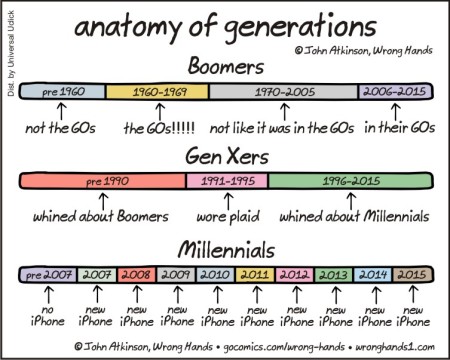
This and other images are available for free for those who minister to emerging adults. Find them on our free resources page.
A mentoring community allows emerging adults to be lead through change and development. According to Sharon Parks, mentoring communities can take many forms including: a classroom cohort, a laboratory, athletic team, or residence hall. (Article) In these settings, there are several avenues (or means) of growth that cause spiritual development. As a leader of a mentoring community, we need to be observant of what avenues of growth our group members might be traveling upon.
Growth Through Questioning
Churches need to be safe places where emerging adults can ask questions without judgement. Unless questions are clearly encouraged, most emerging adults will not ask what is really on their mind. Parks says, “There are too few networks of belonging in which young adults are encouraged to critically reflect on the primary images, symbols, and stories-ideologies-myths that shape their souls and their society.” (Parks 2000, 124) Leaders of mentoring communities must not fear questions or succumb to the pressure to provide all the answers. The purpose of questions is to promote dialogue rather than produce arguments, and to enjoy conversation rather than seek conversion to your point of view.
Some emerging adults do not feel safe asking questions regarding their belief systems due to their nature or up-bringing. When emerging adults don’t know what to ask, mentors can pose “questions that go straight to the heart and the heart of the matter.” (Parks 2000, 132) Leaders of mentoring communities encourage EA’s to form beliefs and provide resources to answer their questions.
Growth through Pain

This and other images are available for free for those who minister to emerging adults. Find them on our free resources page.
The expression – “No pain, no gain” is often true in our spiritual development. Parks states, “Whether or not we hold a formal theory of change and growth, we know from our own experience that new life, insight, and transformation often arise out of circumstances that may be, initially at least, somewhat uncomfortable. (Parks 2000, 109) As mentors of EA’s, we should not seek to remove their pain, but seek to help them survive, reflect, and adapt.
Growth through Reflection
We are living in a world filled with noise. In fact, the absence of noise (and being left alone with our thoughts) can be terrifying. Parks states, “a good mentoring environment in today’s world initiates young adults into ways of life that encourage them to build pause into the emerging patterns of their adult lives. (Parks 2000, 115) A mentoring community equips emerging adults to ask reflective questions: What does this say about me? About God? About the world? After posing these questions, a mentor should wait in silence and allow them to process and reflect.
Growth through Acceptance
A mentoring community is a place where members give and receive acceptance. It “offers a network of belonging in which young adults feel recognized as who they really are, and as who they are becoming.” (Parks 2000, 95) Mentoring environments allow room to grow and change, and yet feel acceptance. A community with belief and behavior boundaries can deter attachment for emerging adults who are still developing their identity and core beliefs.
In our churches, these four avenues of growth are not done in a vacuum, but in environments that seeks to foster faith in God through godly teaching and mentors where emerging adults are challenged to live a life surrendered to Jesus. Our churches will be strengthened when we understand their needs during this phase of life and create mentoring communities.
 Dr. G. David Boyd is the Managing Director of EA Resources, a nonprofit designed to equip parents and churches to minister to emerging adults. If he can minister to your community, please contact him at gdavid@earesources.org.
Dr. G. David Boyd is the Managing Director of EA Resources, a nonprofit designed to equip parents and churches to minister to emerging adults. If he can minister to your community, please contact him at gdavid@earesources.org.












 ast week, I shared some free on-line resources for parents of emerging adults. If you missed it, you can find it –
ast week, I shared some free on-line resources for parents of emerging adults. If you missed it, you can find it –